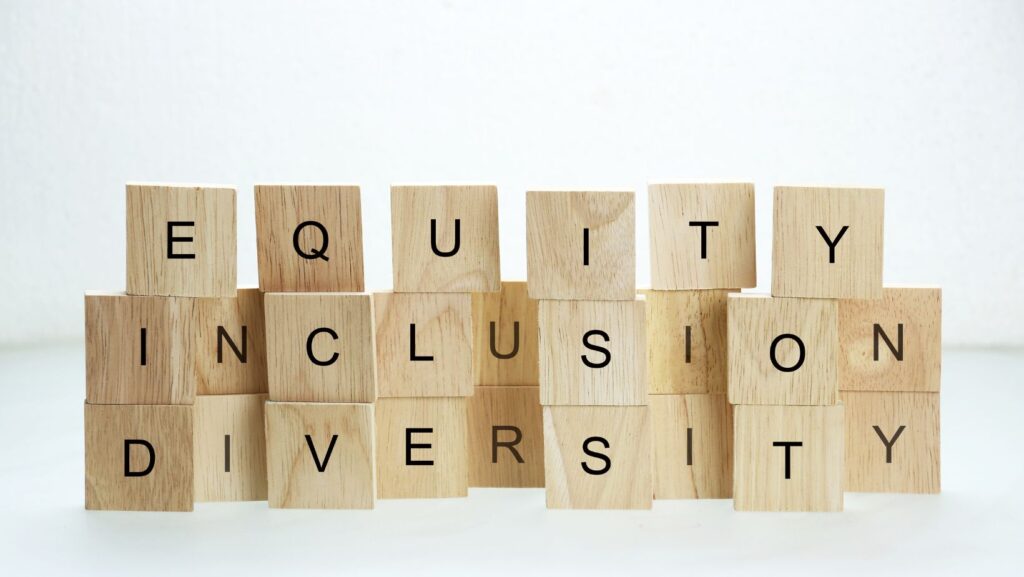In today’s diverse workplaces, Diversity, Equity, and Inclusion (DEI) training exercises are essential tools for fostering understanding and collaboration among employees. These programs not only enhance interpersonal relationships but also drive innovation by incorporating a wide range of perspectives. As businesses strive to create more inclusive environments, the role of effective DEI training becomes increasingly important in shaping a culture that values and respects individual differences.
DEI Training Exercises
DEI training exercises are integral parts of fostering an inclusive and productive workplace environment. They enhance understanding and cooperation among team members, preparing organizations for diverse interactions and challenges.
Importance of DEI in the Workplace
 DEI training bolsters respect among coworkers by exposing them to different cultures and experiences. This training improves empathy by encouraging employees to view situations from multiple perspectives. For instance, role-playing activities might involve participants engaging in scenarios where they experience workplace dynamics from the standpoint of a minority group member. Such exercises often reveal unconscious biases and demonstrate the daily issues faced by colleagues, promoting a deeper understanding amongst staff.
DEI training bolsters respect among coworkers by exposing them to different cultures and experiences. This training improves empathy by encouraging employees to view situations from multiple perspectives. For instance, role-playing activities might involve participants engaging in scenarios where they experience workplace dynamics from the standpoint of a minority group member. Such exercises often reveal unconscious biases and demonstrate the daily issues faced by colleagues, promoting a deeper understanding amongst staff.
Additionally, including DEI content in team-building activities ensures everyone feels valued, reducing turnover rates while attracting talent seeking inclusive work cultures. Effective DEI training also correlates with higher creativity and innovation, as it brings together varied experiences and viewpoints, crucial for problem-solving and generating new ideas. Furthermore, by embedding DEI principles in workplace practices, companies can mitigate legal risks and improve their compliance with anti-discrimination laws, ensuring a safer and more welcoming environment.
These training exercises are not just about compliance but are crucial in developing competencies that help employees navigate and succeed in a globalized business environment. They furnish staff with tools to interact effectively with a broad spectrum of people, fostering an environment where diverse ideas and personalities can thrive, directly impacting the organization’s success.
Key Components of Effective DEI Training
Effective DEI training involves specific exercises that target cultural awareness, inclusion practices, and equity frameworks, cultivating an environment where diverse perspectives thrive. These components not only address compliance issues but also contribute to a more collaborative and innovative workplace.
Cultural Awareness and Inclusion Practices
 Cultural awareness in DEI training educates employees about the different backgrounds and experiences that colleagues may bring to the workplace. This component typically involves activities that share information about different cultures, including customs, traditions, and communication styles. For example, trainers might use case studies that highlight cultural norms from around the world, or host interactive workshops where employees share their own cultural insights. Such exercises enhance empathy and understanding, reducing cultural clashes and fostering a more respectful workplace atmosphere.
Cultural awareness in DEI training educates employees about the different backgrounds and experiences that colleagues may bring to the workplace. This component typically involves activities that share information about different cultures, including customs, traditions, and communication styles. For example, trainers might use case studies that highlight cultural norms from around the world, or host interactive workshops where employees share their own cultural insights. Such exercises enhance empathy and understanding, reducing cultural clashes and fostering a more respectful workplace atmosphere.
Inclusion practices are designed to ensure that all employees feel valued and able to fully participate in the workplace. Effective DEI training will include exercises that simulate scenarios in which inclusion might be compromised, along with strategies to avoid such situations. Common practices involve role-playing exercises that help participants understand the impact of inclusive (or non-inclusive) language and behaviors.
Equity Frameworks
Equity frameworks in DEI training focus on ensuring fair treatment, access, opportunity, and advancement for all employees. This part of the training often involves analyzing company policies and practices to identify and eliminate bias or barriers that affect marginalized groups. For example, DEI leaders might conduct workshops on bias in hiring practices or compensation inequities.
Assessing the Impact of DEI Training
 DEI training exercises are more than a compliance requirement; they’re a transformative tool for modern businesses aiming to thrive in a global market. By integrating DEI principles into everyday business practices, organizations not only foster a more inclusive atmosphere but also unlock the potential for greater innovation and collaboration. These trainings equip employees with the understanding and skills needed to create a respectful and welcoming work environment for everyone.
DEI training exercises are more than a compliance requirement; they’re a transformative tool for modern businesses aiming to thrive in a global market. By integrating DEI principles into everyday business practices, organizations not only foster a more inclusive atmosphere but also unlock the potential for greater innovation and collaboration. These trainings equip employees with the understanding and skills needed to create a respectful and welcoming work environment for everyone.
The benefits of implementing such initiatives are clear. They lead to improved company culture, increased employee satisfaction, and a stronger reputation in the industry. As businesses continue to embrace these practices, they’ll find themselves better equipped to face the challenges of a diverse and ever-evolving global marketplace.

